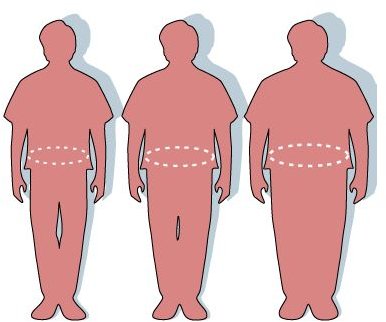Are You a Victim of Weight Discrimination in the Workplace?
Women at Higher Risk
The Yale study outlined that women – more frequently than men – were in the crosshairs of discriminatory attitudes related to their weight. Yet even men will suffer from obesity prejudice once the body mass index (BMI) exceeds 35. For women, the critical BMI number is 27.
It is tempting to explain away this new level of discrimination by pointing out that the Yale study relied on self-reporting. Yet MSNBC quoted an independent Tennessee State University study, which showed that overweight workers make less money than their normal-weight counterparts. The gap in pay was between one and six percent. Adding insult to injury, women were more frequently fiscally discriminated against than men.
What Does Weight Discrimination Look Like?
Derogatory comments or “fat jokes” are some of the more benign but overt expressions of a weight bias. Covert discrimination includes the marginalizing of the overweight worker during business functions; for example, she may be seated at an out-of-the-way table during a dinner – rather than close to the stage or in the line of sight of a scheduled speaker. Meet-and-greet opportunities with company executives may exclude obese supervisors or managers; occasionally, these meetings take place outside of the office at gatherings to which the obese worker is not invited.
Attitudes Behind the Prejudice
Co-workers, hiring managers and supervisors may subconsciously equate obesity with negative stereotypes, such as laziness, sloppiness and lax self-discipline. A study of more than 620 primary care physicians showed that more than half regarded very overweight patients as “awkward, unattractive, ugly and noncompliant.” It stands to reason that this attitude would translate into the workplace and the minds of the managers and supervisors. Employers may also hold fear about their portion of the cost of weight-related healthcare expenses, such as diabetes and hypertension or even weight loss surgeries.
No Protection
Contrary to popular belief, there is no federal law that assists workers who suffer employment discrimination based on their sizes. The Obesity Action Coalition reveals that – thus far – only the State of Michigan and assorted local jurisdictions (e.g., San Francisco) have drafted legislation that protects employees against weight discrimination in the workplace.
Lawsuits under the auspices of the Americans with Disabilities Act are generally not successful. Attacking workplace bias, if an employee is a member of an otherwise protected class, offers a modicum of success, as may be the case in age discrimination suits, but it is still not guaranteed.
Proactive Stance
While attitudes are not quickly changing, the overweight worker does have some power. Dispel the myth of sloppiness by appearing to work consistently well-groomed; overcome the notion of obesity-related laziness by consistently turning in excellent and praiseworthy work. Be on the forefront of causing the mind change!
Sources
- Yale Rudd Center: “The Stigma of Obesity - A Review and Update” at https://www.yaleruddcenter.org/resources/upload/docs/what/bias/WeightBiasStudy.pdf (accessed May 13, 2011)
- MSNBC: “Fat chance: It’s not easy for obese workers” at https://www.msnbc.msn.com/id/16755130/ns/business-careers/t/fat-chance-its-not-easy-obese-workers/ (accessed May 13, 2011)
- Obesity Action Coalition: Weight Discrimination - A Socially Acceptable Injustice” at https://www.obesityaction.org/magazine/oacnews12/obesityanddiscrimination.php (accessed May 13, 2011)
- Photo Credit: “Obesity and waist circumference” by FDA/Renée Gordon/Wikimedia Commons at https://commons.wikimedia.org/wiki/File:Obesity-waist_circumference.PNG
Image Credit: Wikimedia Commons, U.S. Federal Govt.
